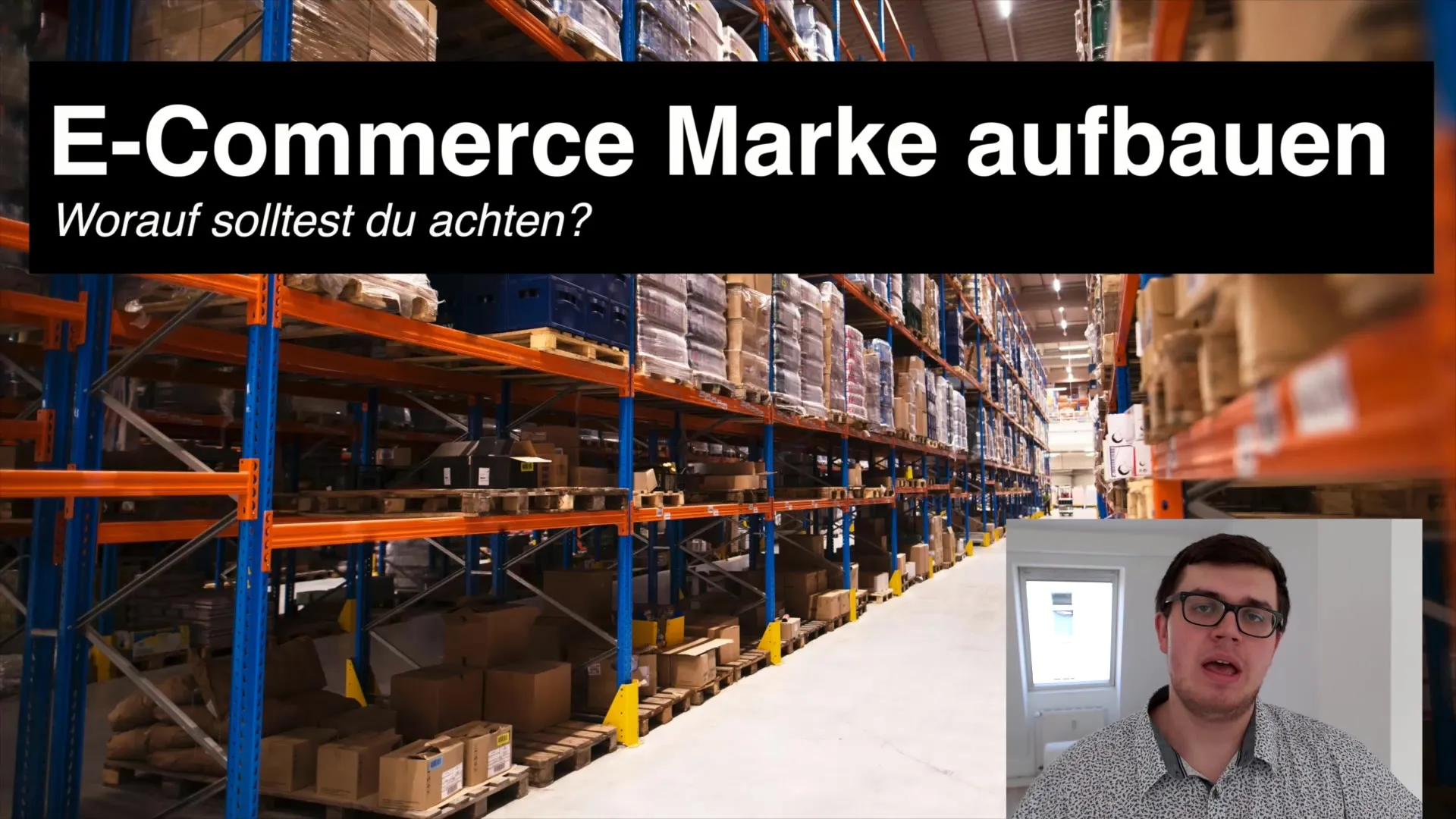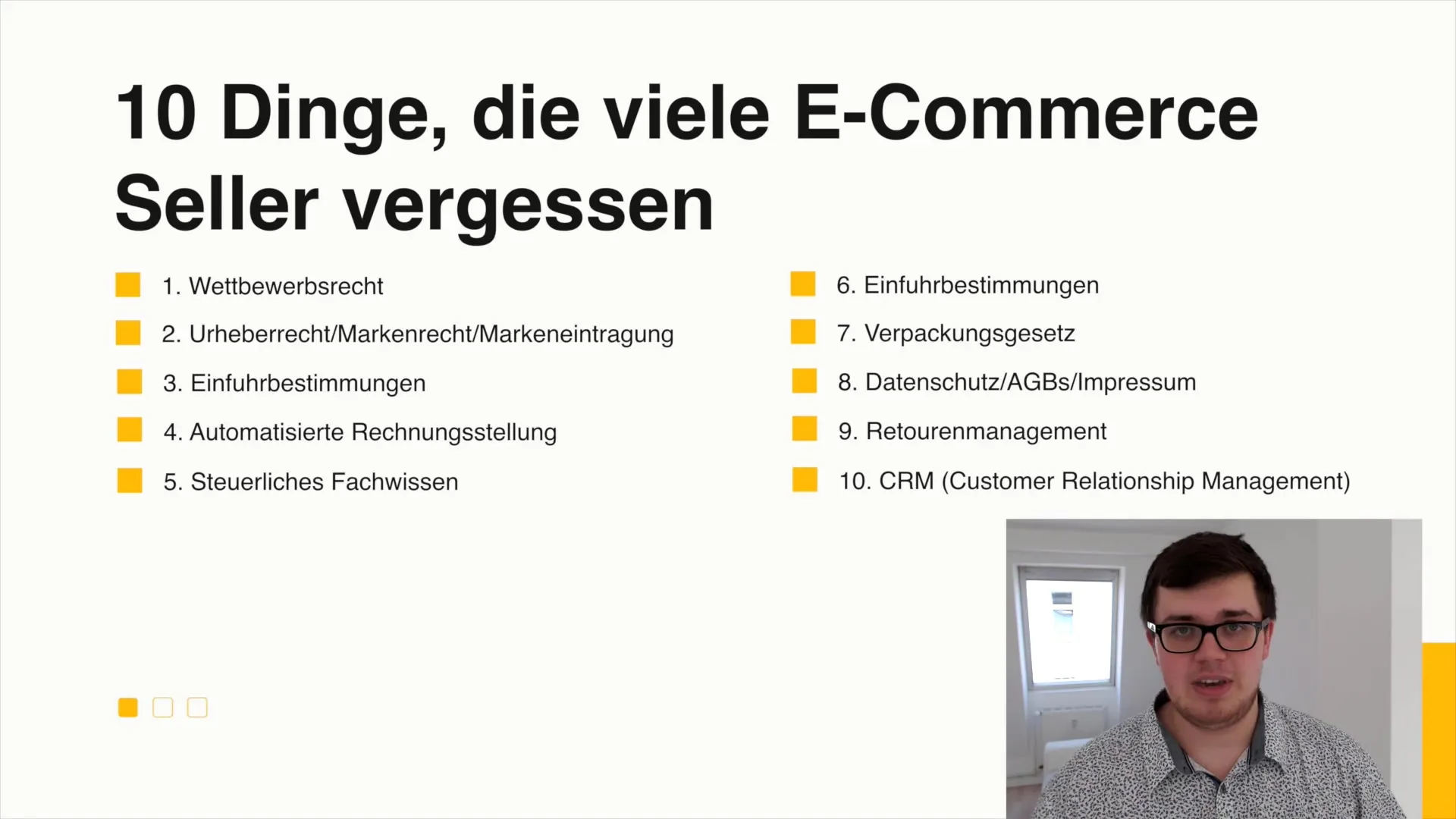Building an E-Commerce brand is an exciting but challenging task. Many people believe that simply creating an online shop and selling a product is enough. In reality, building a successful E-Commerce brand requires much more extensive planning and strategic thinking. This guide aims to provide you with the essential basics and considerations that are crucial in building your E-Commerce brand.
Key Insights
A successful E-Commerce brand requires a high-quality product, a solid understanding of market trends, legal knowledge, and a good marketing concept. Many fail in the planning phase because they ignore these fundamental aspects.
Step-by-Step Guide
Step 1: Find a High-Quality Product
To establish a successful E-Commerce brand, you first need to find a high-quality product that meets the customers' needs. Many founders believe that they can simply purchase a cheap product from China and then sell it at a profit. However, this is a very simplified view. It is important to understand the actual demand for the product and ensure that it meets quality standards.

Step 2: Analyze Market Demand
Before deciding to sell a product, you should analyze market demand. Trends can be seasonal or temporary. A good example is tick brushes – they sell well during tick season but not throughout the year. Similarly, a product like the Fidget Spinner can become very popular in the short term but quickly fade into obscurity.
Step 3: Calculate Your Costs
You must consider the costs of the product as well as advertising and marketing costs. For example, if a product costs only 2 euros to produce, you must also include advertising costs in your calculation. It may be that you need to invest, for example, 10 euros in advertising to generate a sale, which would result in a loss if you only earn 2 euros. You should ensure that your margins are sufficient to cover all costs and make a profit at the same time.
Step 4: Find Your Production Partner
When developing a product, it is crucial to find a reliable production partner. Thoroughly check this to ensure they can deliver quality products and that production prices remain stable. This is particularly important with dropshipping providers, as they may adjust prices or not meet guaranteed delivery times.

Step 5: Consider Legal Obligations
Before bringing your products to market, you must address legal aspects. This includes business registrations, legal licenses, and compliance with regulations, such as packaging laws. Many founders forget these aspects and end up paying high penalties.
Step 6: Automate Invoicing
Automated invoicing ensures that you do not have to create time-consuming manual invoices. There are many tools that can help you automatically send invoices once a purchase is made. This enhances the professionalism of your online shop and saves you time.
Step 7: Develop a Marketing Strategy
A solid marketing strategy is key to the success of your E-Commerce brand. This includes not only advertising your product but also understanding the various advertising channels. Analytical skills are essential here to measure the effectiveness of your marketing efforts and adjust them if necessary.
Step 8: Consider Competition Law and Copyright
Ensure that you are aware of competition law and copyright issues. Violations can lead to legal problems and become expensive. Protect your brand name and make sure you do not offer similar products or brands that could have legal consequences.

Step 9: Implement Returns Management
A thoughtful returns management is essential. You need to clarify how to handle returns: will your production partner take care of returns or will you do it yourself? This should be clearly defined to ensure a smooth process.
Step 10: Use Customer Relationship Management (CRM)
Collect and manage your customers' data efficiently. With a good CRM system, you can gain valuable insights into your customers' purchasing behavior and develop targeted marketing strategies to increase customer loyalty and promote repeat purchases.
Summary
The foundations of building an e-commerce brand are multifaceted. It requires you to find a high-quality product, analyze market demand, select good production partners, consider legal aspects, automate invoicing, develop a marketing strategy, and comply with competition and copyright laws. Only then can you be successful in e-commerce in the long run.
Frequently Asked Questions
How do I find a high-quality product?Analyze the demand, make the product appeal to your target audience, and focus on quality.
What is automated invoicing?It is the use of software tools that automatically generate invoices once a purchase is made.
How do I handle returns?You should establish comprehensive returns management and clarify how returns are processed.
Why is competition law important?Violations can lead to expensive legal consequences.
How do I collect customer data?Through a good Customer Relationship Management (CRM) system, you can efficiently collect and analyze data.


